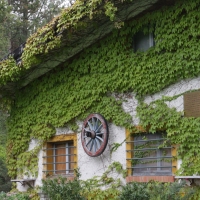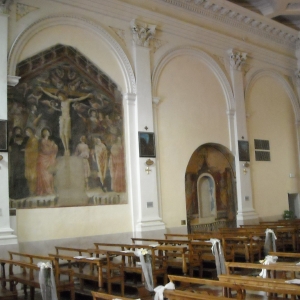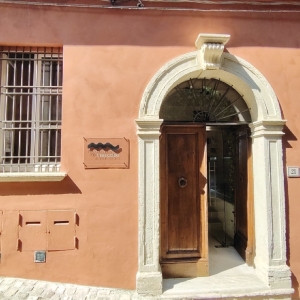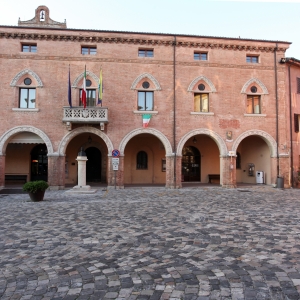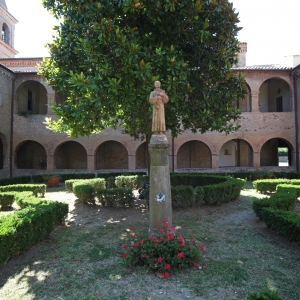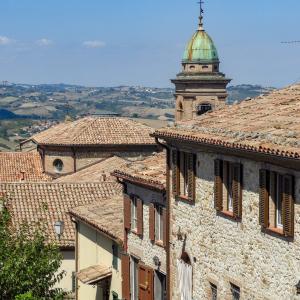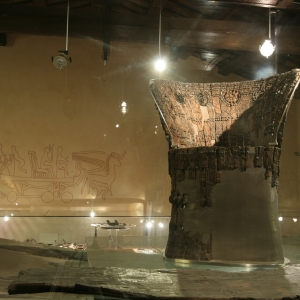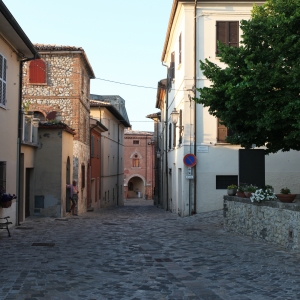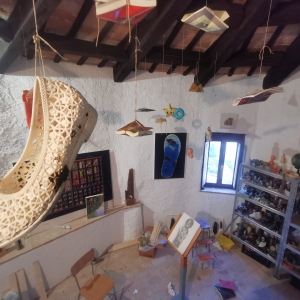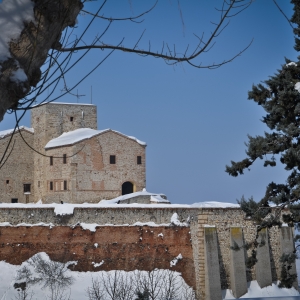Verucchio
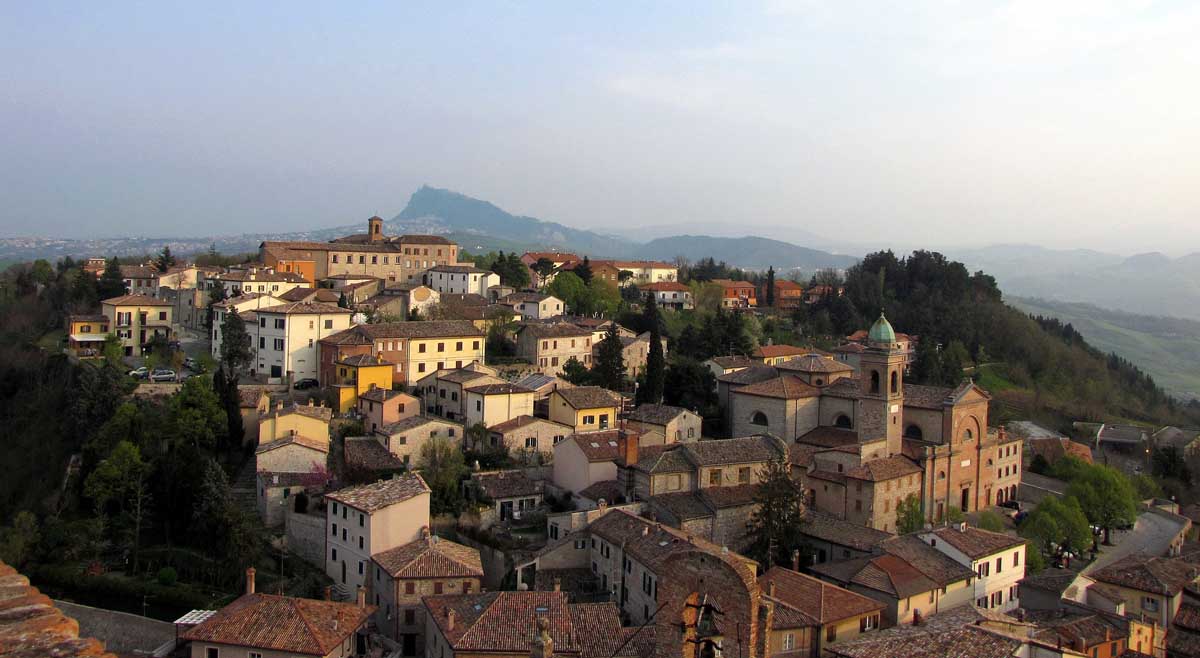
-
Destination
Romagna -
Province
Rimini -
Distance to the main town
15 km - Where it is
- Why visit it
- When to go and what to see
- Room with a view
- Don't miss
- On the table
- Keeping fit
- Significant appointments
- In the surroundings
- Castles in the territory
- Monuments in the territory
- For more information
Where it is
The village is situated on a hill west of Rimini (16 km) and is bordered by the Republic of San Marino (10 km). The flat part of the town is called Villa Verucchio, which is crossed by the SP 238, which links Rimini and Arezzo.
Why visit it
Boasting an Orange Touring Flag since 2005, Verucchio has managed to keep all its charm and its dual nature as both the town that was the cradle of the Malatesta family and many centuries earlier, the centre of Villanovan civilization. Added to this is the beauty of the landscape in the Marecchia River Valley in which it stands, making a visit to this ancient town a must when in Romagna.
When to go and what to see
Verucchio has something to offer all year round and the imposing rock on which it stands makes it even more fascinating.
Between the 9th and 7th century BC it was the nerve centre of the so-called Villanovan civilization, which is thought to be of Etruscan origins. Many exhibits were brought to light in the necropolises excavated around the village and are now on display in the Municipal Archaeological Museum. The area of the digs and the museum are part of the Verucchio Archaeological Park.
The small town is also known as the “cradle of the Malatesta family” not because this is where the family originates from, but where it came to power, thanks to Giovanni della Penna dei Billi (1150-90), known as Malatesta.
Structured as a mediaeval village and full of historical buildings, Verucchio stands on two hills, once crowned by imposing fortresses, Passerello Fortress - on whose remains a monastery now stands - and Sasso Fortress, now the Rocca Malatestiana, one of the best-preserved in the entire seignory and built to dominate the village, valley and plains below.
On the road that descends towards the plains, at the foot of the rocky spur the old town stands on, is the 10th-century Romanesque church, which can only be visited externally.
In Villa Verucchio, a part of the town on the plain, there is the Franciscan Monastery that, according to tradition, was founded by St. Francis in 1213. In the cloister stands a majestic cypress that is over twenty-five metres high that, it is said, originated from a staff planted and grown by the saint himself.
Room with a view
For those who want to stop for a few days, it’s worth staying at Hotel Oste del Castello in the old town centre. Dating from the 18th-century, the building has been beautifully renovated and offers all the facilities expected of a four-star hotel. It is ideal for either work or business meetings, for which it has multi-purpose historical rooms, and for relaxing stays. Under the hotel, in the tufa caves, there’s a wellness area with modern equipment.
Don't miss
If possible, we suggest you plan a visit to the village on a beautiful clear day when there is no fog, so that from the highest parts of the rock you can enjoy breathtaking panoramic views spanning from the Marecchia Valley as far as the wonderful coastline of Rimini on the Adriatic.
On the table
Restaurants, inns and trattorias in these parts serve traditional local dishes. Particularly popular are meat dishes, with the produce often purchased from local farmers. As the town is in a hilly area, the Extra-virgin Olive Oil produced here is particularly tasty and can be purchased at the “Oleificio e Azienda Agricola Carlini Giorgio” at 33, Via Peschiera or the “Oleificio e Azienda Agricola Sapigni” at 39, Via Statale Marecchia, both in Villa Verucchio.
Keeping fit
In Villa Verucchio, golf lovers will find the Rimini-Verucchio Golf Club, an 18-hole course designed by Brian M. Silva, an authoritative and well-known architect of several American golf courses.
Significant appointments
Some particularly important events are held here such as the Verucchio Music Festival in July and there are shows, re-enactments and mediaeval dinners at the fortress in August.
In mid-September, the Feast of Santa Croce or “Fira di quatorg” has food and wine, dancing and local folklore.
In January, the village hosts the traditional village fete “Fira de bagoin” (Pig Festival) with the possibility to taste and purchase locally-produced meat.
In the surroundings
Although not part of Italy, the nearby (10 km) Republic of San Marino, the ancient land of freedom, was declared a UNESCO site in 2008. All of Mount Titano, with its Regents’ Palaces, fortresses and mediaeval streets, is well worth visiting.
Just 5 km away is Poggio Torriana, which stands on a rocky spur, and a further 4 km away there is Montebello. Also on a rocky spur, it is home to a castle called Rocca dei Guidi di Bagno, home to the ghost of Azzurrina.
Continuing into the hinterland, just 16 km away is the magnificent fortress of San Leo, which stands on an imposing mass of rock with sheer walls and is well worth a visit.
Monuments in the territory
